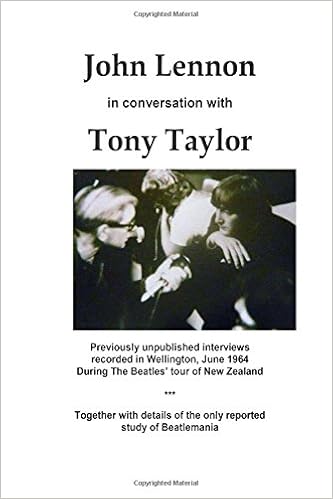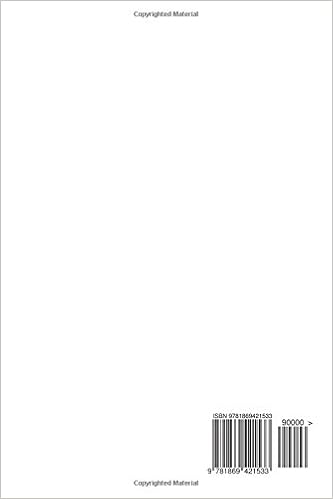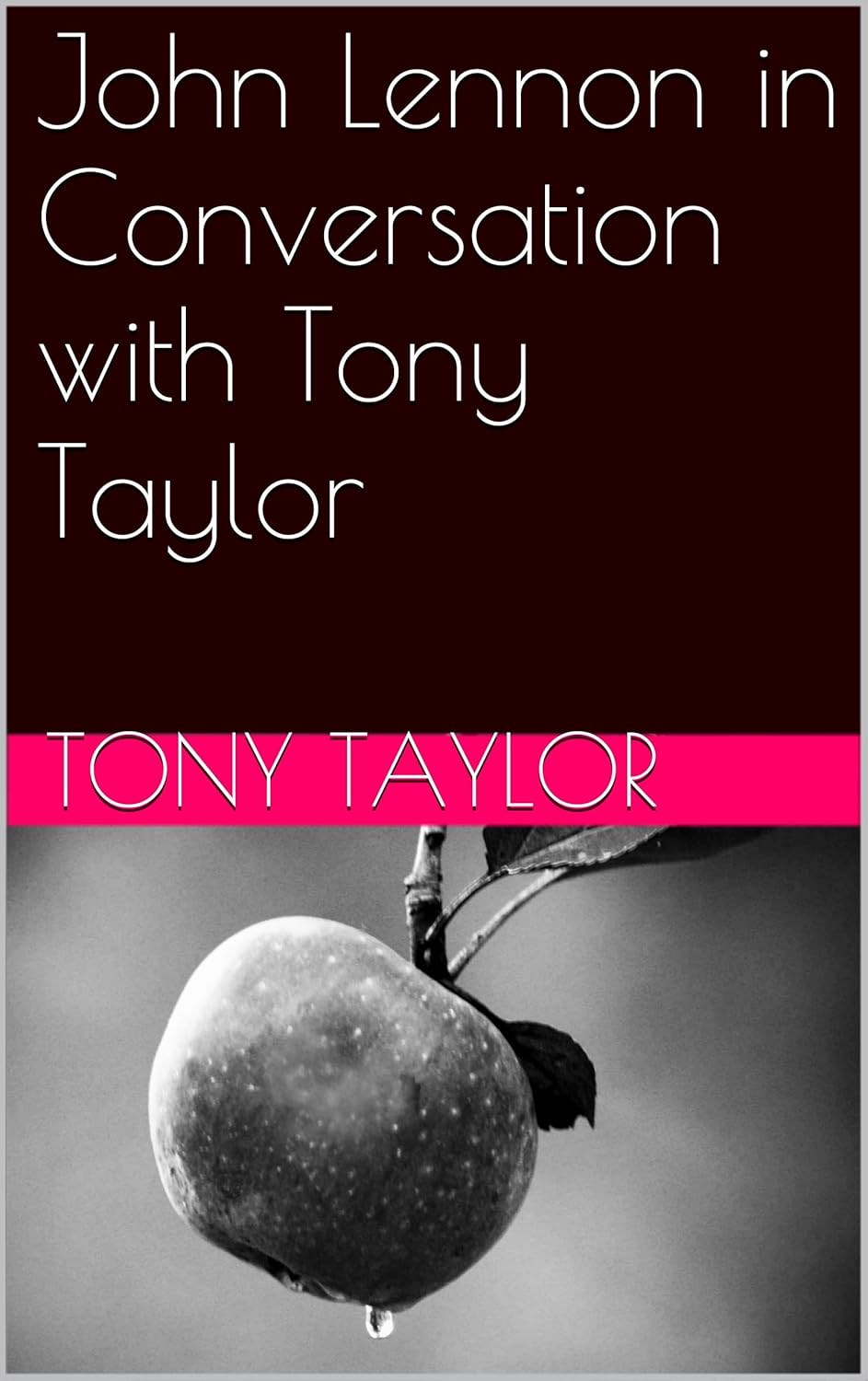A conversation with John Lennon
STUFF
October 24 2015
Tony Taylor recalls his interviews with John Lennon in 1964, in Wellington, during The Beatles tour of New Zealand.
Carly Thomas/Warwick Smith/stuff.co.nz/Nga Taonga Sound & Vision
Caught on a recording that has sat in a garage for 50 years is a chat with John Lennon that is a bit different than most. The interview, by New Zealand academic Dr Tony Taylor, has come to light in a newly published book and Carly Thomas sat down with the man who talked Beatlemania with John Lennon... twice.
Times change, that's a given.
Years pass, decades pass and things that felt so immediate become history in the blink of an eye.

Dr Tony Taylor has recently had his John Lennon interview's from 1964 published in a book.
WARWICK SMITH/FAIRFAX NZ
But some things, people, times, stand out more than others.
They make an indelible mark and they become a yesterday that we hang things from. . Their memory lingers long after the fact.
The Beatles have done just that. Think about the sixties and there they are: dapper suits, lyrics about young love, the hair and screaming fans.

Dr Tony Taylor's published interviews.
WARWICK SMITH/FAIRFAX NZ
It's those fans, the hysteria, the extreme reaction, that was new.
It got given the title Beatlemania. It worried parents, made fans faint and it got Dr Tony Taylor, an Emeritus Professor of Psychology at Victoria University in Wellington, thinking.
"I started to look around just to see if anybody had written anything about this," he says.
"Nobody had, I was very surprised. The consumerisation and the cluster of revolutions - the youth revolution, the sexual revolution, the theological revolution, the racial one they were all going on at this time and somehow this made, in still a post war period, this made the rising generation restless."

Tony Taylor and John Lennon in New Zealand in 1964
It was June 1964 and John Lennon, Ringo Starr, Paul McCartney and George Harrison set off on a series of tours.
The Beatles were at the top of the charts in the UK and had just started to attract audiences overseas with songs from their first two albums Please Please Me and With the Beatles.
Radio airplay and a broad marketing campaign in the US quickly drove huge record sales and everywhere they went translated into ear piercing screams, fainting and physical hysteria.
Crowds became frenzied throngs and fans were so excited and determined to see the band that police sometimes resorted to using fire hoses to hold them back.
At this time Taylor, originally a Cockney from London's East End, was teaching at Victoria University and had decided to study the phenomena and attach some clinical psychology to this new level of band worship.
He sketched out a plan that would see his 12 honours students gathering data using psychometric testing of fans in the crowds and youths at high schools.
He also thought he would try his luck for an interview with Lennon himself.
"I was cheeky", he says.
"I asked broadcasting if they would let me have a technician to record the interview and in return I'll give you the results on radio and television.
"They were happy about that but they were surprised, they said 'how much is it going to cost you?' I said nothing and they said, 'what!'."
"But you see when I rang up, his name [the deputy manager of broadcasting] was the same as mine, Dave Taylor and he said 'yes alright', because I said I would like to speak to John."

Taylor was very specific about that, it had to be Lennon.
"Why did I pick him? Because to me, he seemed to be the most reflective and the most sensible and indeed, after I saw John the other three bounced in and they were all crazy as nutmegs."
At the St George Hotel in Wellington, Taylor took his place in the media scrum.
He had been accredited as "a press man" and was the very last interviewer.
But his questions were different from what was the norm for reporters at the time.
He asked Lennon: "how do you account for this particular reaction of teenagers"?
His reply was perhaps more telling than his usual answers:
"I don't know because that kind of music, it gets over straight away, you know, there's no messing, you know. If it's played confidently it doesn't have to be played all that well. It's exciting, it makes you want to dance mainly, you know I still believe that, even though they're jumping and screaming. They would dance if we were playing for two hours, they'd stop screaming actually."
It was recorded, as clear as day, on magnetic tape reels that have been stored in Taylor's garage for 50 years.
After the interview Taylor said his goodbyes to Lennon, noting that yes indeed he was "a clever young man".
And that's when the sound engineer hit him with a bomb shell.
"He said 'look I'm sorry, the plugs have come adrift and I don't think I have anything on file'. So I thought, 'oh God, what am I going to do'?'"
What he did was he rang Dave Taylor a second time and ask for another interview.
He obliged, as did Lennon.
"And then, as a bit of luck, the first tape was good!"
Another bit of luck was that in between interviews he went along to the Beatles concert at the Wellington Town Hall, giving him a real life, screaming, frantic, insight into the hardcore Beatles fans.
He became his own guinea pig and at one stage, when he felt his pulse racing, he nudged the 'bloke on my left'."
"I said 'take my watch and tell me when a minutes up' and I tried to take my pulse because it was going like fury you see.
"So the next day the professor of sociology rang me and he said 'look Margaret (the professor's wife) has just had her morning tea and one of the teachers had come in and said that her son was at the Beatles last night sitting beside some nut who asked him to time his pulse.
'Do you know anyone that would be doing that sort of research?' and I said, 'no Jim I don't know'."
Taylor laughs and you can see that his long career has been punctuated by great humour.
Prior to the concert he approached the University Grant Office to cover the cost of his concert admission. He tells the story with classic Cockney comedy.
"Now the professor of mathematics, well he had no qualms about it, the professor of philosophy had one or two reservations, but the professor of geology, he hit the roof.
"He came storming along to my room and he banged on the door and came in and said, 'you're not getting any of this, you're after ten pounds to go and see the bloody Beatles' and I said 'yes, Bob I am' and he said, 'that's not research, it's not scientific research.
"And I said 'Bob, you either pay this one, or you'll pay the next one'. He said 'what's the next one going to be?' I said, 'well, I'm going to do a study on brothel keeping and I'm going to need stud fees that will be a bloody sight more than ten pounds.!'"

The Beatles at Wellington Airport during their New Zealand tour.
He got his way. He describes the concert as a "pandemonium".
"Were it not for the timely playing of the slow sonorous beat of the national anthem, and the full glare of house lights switched on suddenly to restore reality with the boys in blue, there might well have been further disruption and disturbance."
The second interview took place in Lennon's hotel suite and Taylor says this time his questions were a bit more informed and pertinent.
Questions such as: "What are the main sort of themes that you have in mind when you get down to this, because clearly it has a tremendous impact and an appeal to people."
Lennon's response was a glimpse into the mind of a man who had also just said that he felt like he had "been in bed for about 49 hours now".
"Well, I think a tune is the main thing, or the melody of the tune has a melody - some of them don't need one. And then it's best just to sing about love lost or love gained, as we said the other day. They're the best themes. You don't want to be singing about chairs and factories and things, leave that to the folk singers."
Although from the interviews Lennon appears to be flummoxed about Beatlemania, Taylor remains convinced that he had more knowledge of what was going on than he let on.

At one point Taylor asks Lennon if the rumours that he piped in any screams were true.
"He professed not to know about it but I wondered about it. The Beatles only appeared for 20 minutes at the end of a two hour performance and they had these big work up groups with characters in glittering, reflective suits and they were skilled operators in how you could whip up noise.
"He was trying to be cool about that sort of thing, but it was skilfully done."
The results of surveying more than 350 people showed "no distinct psychopathology in either the group of the keenest Beatle fans or in any other group".
The more affected were the females, who gave psychometric indications of developmental immaturity. The results also suggested that inter-generational tensions combined with endemic cultural and social issues set the climate for the mass-audience response.
"I wanted to see to what extent there was any clinical component in this and there wasn't. It was a developmental component and I was satisfied that many of the fears for the older generation, if not my own generation, were not unsubstantiated."
What is substantial is Taylor's passion and enthusiasm for finding out more about the human condition.
It has seen him have a varied career, he has undertaken research in Antarctic isolation, done research for the Volunteer Service Abroad, has looked at psychological stress in response to crisis of various kinds and has worked in probation and prison psychology, student counselling, clinical psychology and psychiatry.
Nowadays, Taylor is seeing out a somewhat active retirement in Paekakariki with many more ideas running through his head.
His book can be bought from Kakariki Books, which, Harry Potter-like, sits at the end of the historical train platform.
Taylor frequents the shop and long chats with owner and co-publisher of the book, Dr Michael O'Leary, are interjected with long trains pulling into the station.
The original recordings of the time, he got to ask Lennon a thing or two, have been passed onto his grandson, who's in a band, and "they're doing pretty well" says Taylor.
He cocks his head and grins, "they have the most sensitive lyrics.....that you can't hear!"
More laughter that gets cut, ironically, by the incoming commuter train on its way to Wellington.
John Lennon in conversation with Tony Taylor was published by the Earl of Seacliff Art Workshop.
- Stuff




No hay comentarios:
Publicar un comentario